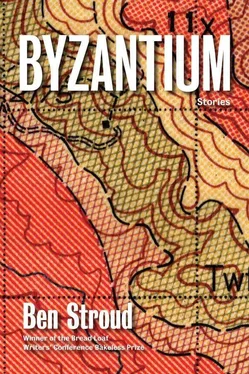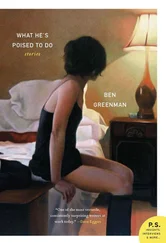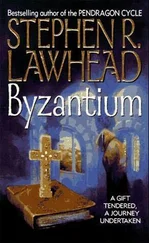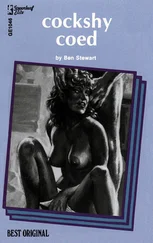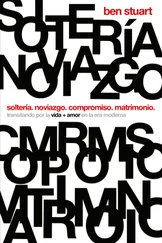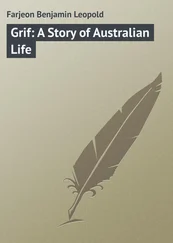Then the Black Lion, a band of anarchists that Burke had foiled multiple times, caught him halfway up the Siegess äule and shot at him. He escaped with only a slight wound.
In the third attempt, an assassin working for a consortium of villains — perhaps Bloch, though the connection was never firmly made — snuck into Burke’s rooms with the intention of garroting him in his sleep. The assassin got lost in the halls, and as he wandered from room to room Burke crept up behind him and stuck him with a blow dart from his collection, putting him instantly to sleep.
Doubtless there were more, but they have not been recorded. Once, when asked about the attempts, Burke said he did not mind. “Let them come. Very well. But they mustn’t touch—” At that he broke off. When pressed, he refused to say anything else, though it is generally agreed he was referring to the harrowing events of the Schott Affair, which had passed just months before.
The Schott Affair
Aside from the gossip at Wiesbaden, the only other specific mention of Olivia Ashdown in Burke’s history — and perhaps the greatest evidence of his love for her — comes in the middle of his investigation of the murder of the mirror magnate Johannes Schott. In 1893 Schott invited his family, as well as Burke and several old army friends, to his country mansion to celebrate his birthday weekend. But just before the first night’s dinner, Schott was found stilettoed in his study. At Burke’s insistence the police sealed the mansion while he examined the rooms and conducted interviews, and by the next morning he had discovered Schott’s son’s gambling debts, his valet’s true identity (he was Schott’s nephew), and a suspicious ash pile in the garden. Burke was about to question the rest of the staff when he received an unsigned telegram. To the consternation of the police and the papers, Burke fled to Bad Kreuznach.
There, the telegram had told him, Olivia — later identified by the papers as “an unknown woman”—lay dying. She had been poisoned, and as the doctors treated her, Burke contributed his knowledge of antidotes. The toxin was rare, taken from the back of a Borneo toad, and, despite the telegram’s warning, she had not been given a lethal dose. Once Olivia was beyond danger, Burke returned to the Schott mansion. Within an hour he identified the murderer as Schott’s wife, and as he questioned her she confirmed his suspicions, confessing she had arranged Olivia’s poisoning with the hope of stopping him. When Burke asked how she knew of his love, she answered, “I have a friend.” Scarcely before the last word had passed from her lips, she fell back in her chair and a bottle of prussic acid, which she must have emptied when she heard Burke’s steps outside her door, rolled from her hand.
The identity of Frau Schott’s “friend” remains unknown. Some hold that it was Bloch, that he had stepped briefly out of retirement to give Frau Schott the plan, merely to unnerve Burke. Others believe Frau Schott was a secret devotee of the Reverend Stöcker, who, along with his attacks on Jews, had begun deriding the government’s reliance on “this trained ape in man’s clothes.” At any rate, Burke’s love for Olivia had become known to the criminal world, and now he had to choose between her and his profession. He endangered her, and she made him vulnerable: any fiend who wished to thwart him need only threaten Olivia. His decision seems clear. After the Schott Affair, the record of his cases contains no more false entries of jewel thefts in spa towns.
Des Mohren Dilemma
Not long after the Schott Affair, Burke received perhaps his highest honor. In the winter of 1894, an opera inspired by his career, Otto Hussner’s Des Mohren Dilemma, opened in Berlin. Set in seventeenth-century Rome, Des Mohren Dilemma intertwines a detective, Burccino, with the fate of two unfortunate lovers, Alberto and Francesca. At first Burccino rebuffs their entreaties for help. By the opera’s end he rushes to save them, only to find he is too late.
Two anecdotes survive from the opera’s run. The first occurred during the second intermission on the opera’s opening night, after Burccino has unknowingly aided the villain in his plot to divide the lovers. Burke was smoking in the salon, chatting with Prince von Ysenburg and a stoop-shouldered general, when a drunk Junker in a lancer’s uniform accosted him. “You fool!” the Junker cried as he tottered up to him, taking hold of Burke’s sleeve and scowling. “How could you? Those poor young things. How could you? Fool!”
All in the salon turned toward them, and for a moment Burke was startled. Then, he smiled and said, “I’ve been asking the same question. I find this Burccino rather blind.” The strained moment passed — the Junker, swaying on his feet, was pulled away by his friends — and received only a slight notice in the papers. And yet is this incident not a brief foreshadowing of what was to come?
The second anecdote concerns Burke’s reaction to the opera itself, which he attended every night of its run. His constant presence became a piece of Berlin gossip; those in the audience noted that he always wept during Burccino’s first aria, after Burccino refuses the lovers and laments that he was not fashioned for love but reason alone.
The Last Months
The next year, Burke worked with a frantic brilliance, crisscrossing the Continent, completing investigations in the span of hours, sometimes minutes. Stolen pearls in Nîmes followed by poisoned bread in Königsberg, blackmail in Prague followed by a kidnapping in Utrecht, counterfeiters in Worms followed by a druidic murder at Rügen. He turned nothing down, allowed himself no rest. For the first time since the Case of the Murdered Twin, he tracked lost dogs and followed adulterers. Observers noticed a sharp change in his behavior. He didn’t smile. He was cruel to waiters, short with clients, dour with reporters. He ignored invitations to the Imperial Palace, and was cited twice for drunkenness, once for horsewhipping a prostitute. Except for the tinge of desperation that infused his labors, one might consider this period a florescence. It was as if he knew.
The Folsch Scandal
On December 5, 1895, the war minister visited Fasanenstrasse and disclosed to Burke a grave predicament. He had made a secret bargain with Russia: in exchange for three thousand Folsch rifles (whose precision was unmatched), the czar would quietly transfer a strip of land along the China Sea to German hands. But the rifles had been stolen in transit, and the czar’s minister was furious, accusing the Germans of duplicity. Were the rifles not recovered, an international crisis would be unavoidable.
That evening Burke traveled to the far edge of Silesia, the site of the theft, and once there followed a set of subtle clues (specks of foreign soil in the snow, a dropped button, a twisted leaf) south and west across the Austrian frontier. At Pressburg he cabled the minister that he was certain the thieves were traveling by river barge. But the next day the minister received a disturbing report. He’d sent several of his own agents to aid Burke. They’d taken rooms for the night in a tavern, and when they called on Burke in the morning they found he was gone. His night candle was burned to a nub, unreadable notes and sketches lay scattered on his table, and his bed was unused, his small traveling bag still beside it, unpacked. There was no sign of a struggle, and the agents hoped Burke had simply taken a morning stroll to order his thoughts. But with each passing hour they knew: wherever he was and however he got there, he was already far away and would not be returning. The minister confined himself to his office and sent a barrage of conciliatory telegrams to the Russians while he awaited more news from his men, whom he’d ordered to search the riverbanks for Burke’s corpse.
Читать дальше
